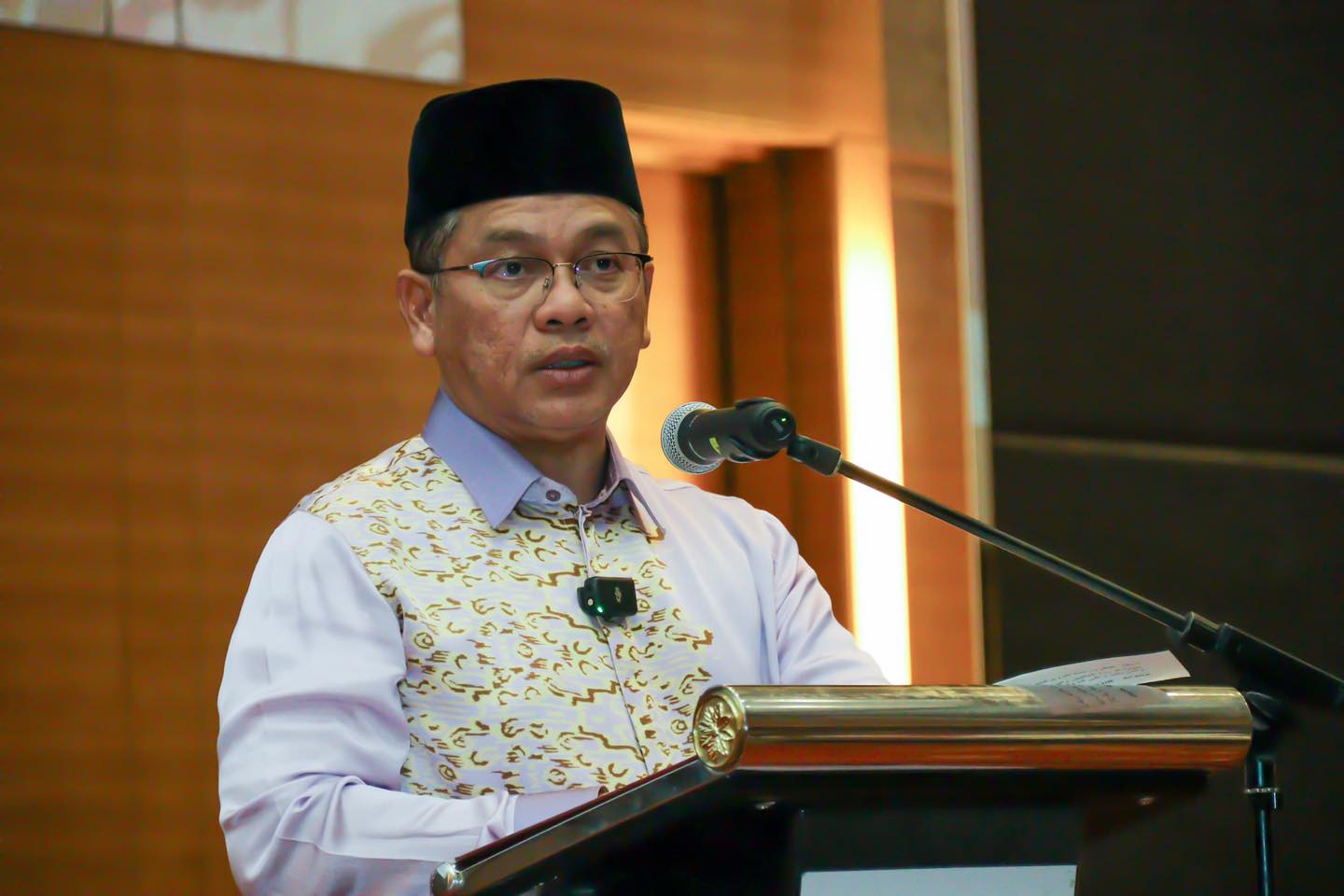KUALA LUMPUR, Oct 18 – Religious Affairs Minister Mohd Na’im Mokhtar affirmed today that the Federal Constitution guarantees the protection of human rights for all Malaysians, including those from the lesbian, gay, bisexual and transgender (LGBT) community.
The minister in the Prime Minister’s Department was responding to a question by Pokok Sena MP Ahmad Saad, who sought the Department of Islamic Development’s (Jakim) views about Prime Minister Anwar Ibrahim’s statement to an “international news portal” that “LGBT rights should not be disturbed”.
In an interview with CNN’s Christiane Amanpour last month, Anwar said there is a consensus among different religious groups in Malaysia against the open and public display of LGBT identities and activities. However, the prime minister, who is also Tambun MP, said he does not endorse any attempts to harass the LGBT community.
Mohd Na’im said Jakim’s stance on LGBT has been quite consistent, and the government’s position on the matter is clear, deeming it unacceptable, especially among Muslims.
“As I mentioned earlier, in the same context, as Tambun (Anwar) pointed out, it is about recognising that this group has fundamental rights under the constitution. For instance, the right to education and so on.
“Therefore, the approach taken by Jakim is to collaborate, as I mentioned earlier, with other agencies to raise awareness and take actions to ensure that [people in] this group return to their true nature and can be made aware of the wrongdoings they may engage in.
“So, to conclude, what Tambun mentioned does not mean accepting LGBT. However, in the context of human rights or the rights provided, including those in the Constitution, these cannot be denied to them. That is the stance Jakim takes,” the senator told Parliament.
Mohd Na’im said some of Jakim’s involvement with the Ministry of Health (MOH) on the LGBT community included health awareness and prevention programmes on HIV.
“Jakim’s involvement in programmes managed by MOH, such as the National Strategic Plan For Ending AIDS 2030, was established in 2016, and a midterm study was conducted in September 2023.
“The second initiative was the Guidelines for Managing Gender Health Issues in Health Clinics, which were provided in 2017.
“The Training of Trainees (TOT) Programme for Prostar (Healthy Without AIDS Programme for Adolescents) 2.0 at the national level was organised by MOH twice in 2023, and all states conducted TOT to train participants throughout the year 2023.
“Finally, the Prostar 2.0 module by MOH was provided in 2023, and Jakim was involved in developing the module on core values and spirituality,” Mohd Na’im said.
In a pilot programme that started last January with assistance from the Global Fund, the MOH made pre-exposure prophylaxis (PrEP), an oral medicine taken to prevent getting HIV from sex or injection drug use, available for free at selected public health clinics in states with high HIV prevalence, namely in the Klang Valley, Johor, Penang, and Sabah.
After controversy broke out following an answer in the Selangor Mufti Department’s FAQ website about PrEP, multiple health advocates came out in support of the HIV prevention programme.
The Malaysian AIDS Foundation (MAF), Malaysian AIDS Council (MAC), and the Malaysian Society for HIV Medicine (MASHM) said last December that PrEP was 99 per cent effective in preventing HIV infection via sexual contact, far superseding the effectiveness of other prevention methods like condom use and abstinence.
Anwar’s government subsequently decided to submit all public health policies to religious considerations, amid controversy over the MOH’s PrEP programme.
In another development, Malaysia’s Drug Control Authority (DCA) last month endorsed the registration of Apretude, a cabotegravir-based medication, to protect high-risk groups from HIV infection after an Asean joint assessment.
Cabotegravir, a long-acting injectable, only has to be taken every two months, unlike daily PrEP pills.








